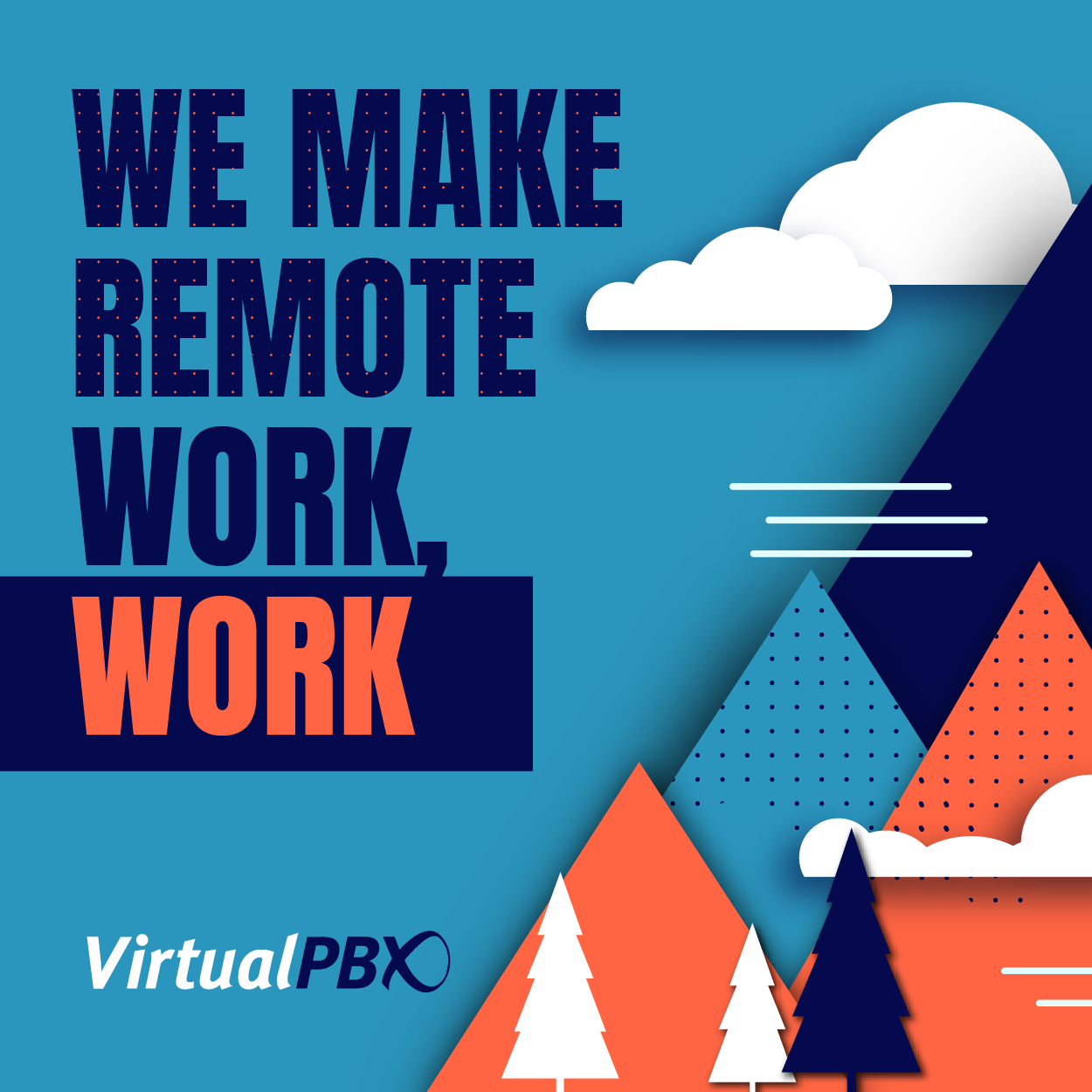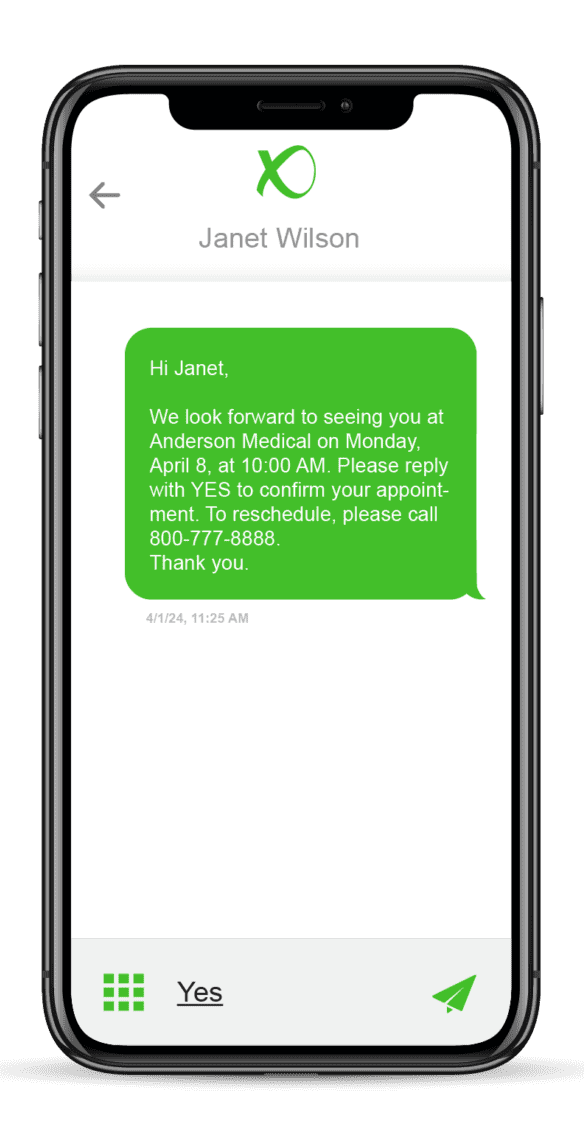You have questions about managing a remote team. Kevin has answers!
Our KP360 series continues today with Kevin Peyton’s perspective on managing a remote team. As our Vice President of Sales, Kevin has interviewed, hired, onboarded, and managed dozens of individuals during his tenure — preparing them to sell the VirtualPBX Business Phone System.
Now he’s here to share his knowledge with all other managers who find themselves in remote work situations. His brief interview went something like this:
Hiring a Remote Team
What do you look for in a new hire?
When interviewing a potential candidate for the Sales team, I first want to know if there’s a technical fit between their skills and the requirements of the job at VirtualPBX.
Do they have the requisite experience necessary to perform the job well? This should include hard skills like Sales experience. I want to know that they’ve been involved in finding new clients and closing deals. When it comes to closing deals, I want to hear about their levels of involvement – including situations where they were the architect of the sales cycle and when they worked in group settings.
The hard skills are important to have because they tell me whether, technically, someone can complete daily tasks in my department. More than that, though, they reveal soft skills like self-motivation, competitiveness, sense of humor, and curiosity.
The technical fit (a person’s resume) reveals a person’s cultural fit (their personality and drive) for a position. Managing a remote team requires that I understand both those aspects to my new hires and my long-time team members.
What do you mean by cultural fit?
I want to find out what motivates someone. If they have demonstrated self-motivation by working above and beyond their prescribed duties, that can be much more important than just closing X number of large deals in a month.
What I look for in my team is the ability to answer two questions about any lead: What does a business have now? Why are they looking for something different?
A new hire’s enthusiasm and competitiveness can help get to the heart of those two questions. Their humor and personality also help show me whether they will work well with the rest of the team.
What’s the most important thing you tell interviewees?
I’m candid about what they’re getting into. There shouldn’t be any surprises for either of us.
I want a new hire to understand what the job will be like. And I want to know how the candidate will work in the job. When that knowledge is passed along properly, the process of onboarding and daily work will move more smoothly.
Onboarding a New Hire
How does your remote onboarding process typically proceed?
We take multiple video calls throughout the new hire’s first weeks.
We’ll talk about the systems we have in place, processes we use to manage sales, and products available to our customers, such as our flagship Dash Phone System and our SIP Trunking service. We’ll also work through typical scenarios where I can play the role of a client to see how the new salesperson handles situations.
There’s a lot of documentation and company collateral that employees need to become familiar with. I’ll assign homework, basically, that they can read through at their own pace.
What’s the most important aspect of onboarding?
Both in managing a remote team and an in-person team, this answer is the same: Employees should follow certain standard internal processes that keep the whole team working as an organized group.
Our CRM system, as an example, could be used 10 different ways by 10 different people who interacted with it. New hires have learned how to use tools in ways that fit their previous organizations. Now I have to get them up to speed with the process at VirtualPBX.
While each individual can have their own style in closing deals and working with customers, the information that makes it into the CRM – or any other central Sales system – should be standardized. When I look at a client’s history one year from now, I want to know where to find correspondence, deal details, phone number, etc. If those details aren’t all put in an expected location each and every time, the process breaks down.
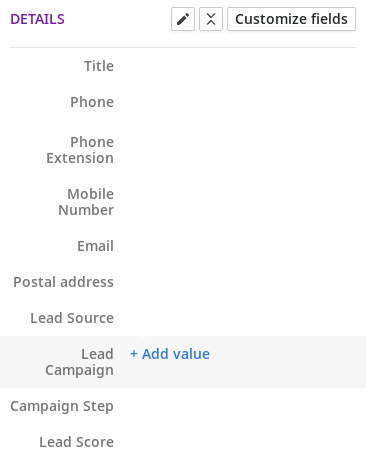
Managing the Remote Team Day to Day
What are your requirements for daily, remote work?
I like to have one team meeting a week. This helps keep everyone on the same page. Team members can give progress reports about bigger projects they’re working on that impact the rest of the group.
Additionally, I take time throughout the week for frequent, but brief, check-ins with individual team members. This gives me the opportunity to see how everyone is handling their personal tasks, including closing deals with clients and generating new leads.
I also hold longer one-on-one meetings to discuss issues at greater detail. I might have questions about a large deal that’s taking shape, or the team member might have concerns to raise that wouldn’t be appropriate in group meetings. These meetings are a good time for those types of issues.
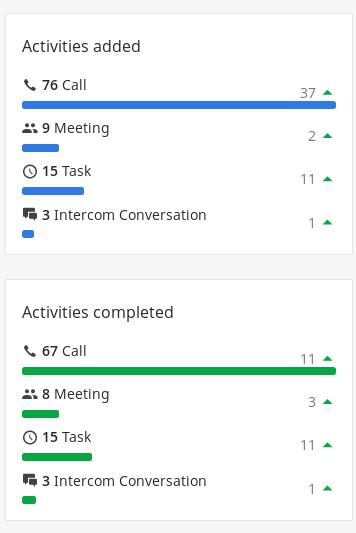
How do you make sure tasks are being completed?
I can gain a lot of information from group and individual meetings.
I also have access to metrics like calls made or deals closed in the past week or month. This data gives me a good indication of the cadence of someone’s work. I can also see live statistics about how calls are being handled on the VirtualPBX platform; this will show me how long call sessions have lasted, who has taken any number of calls in a day, and other detailed information about how work is progressing during the day.
If an individual typically completes 50 calls a day and I see that, this past week, they only completed 10 a day, then something is wrong. I can investigate further by speaking to that person in a one-on-one.
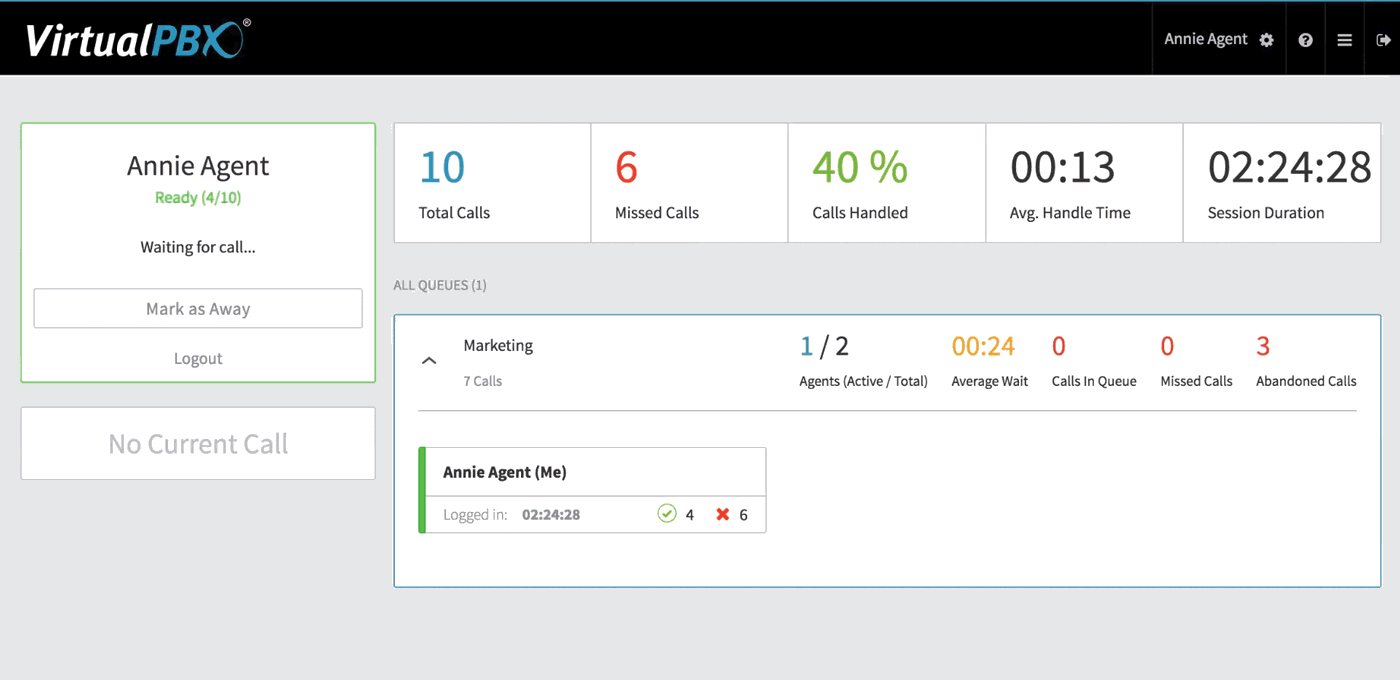
How much autonomy do you prefer to give your team?
In a perfect world, I like to give broad directions and let my team members handle the details.
Individual style plays a strong role in how much I interact with employees. One person might need more hand-holding than another.
Similarly, one person might complete 20 calls a day and close a lot of big deals while a second person might complete 50 calls and close many more small deals. It’s best when every individual can show their personality and let that guide them to productive daily work.
I’m always available for assistance. When my team is working hard, completing tasks, finding new leads, making sales, and using tools properly, then the whole machine operates well. The most difficult part of managing a remote team is keeping all those parts moving.


